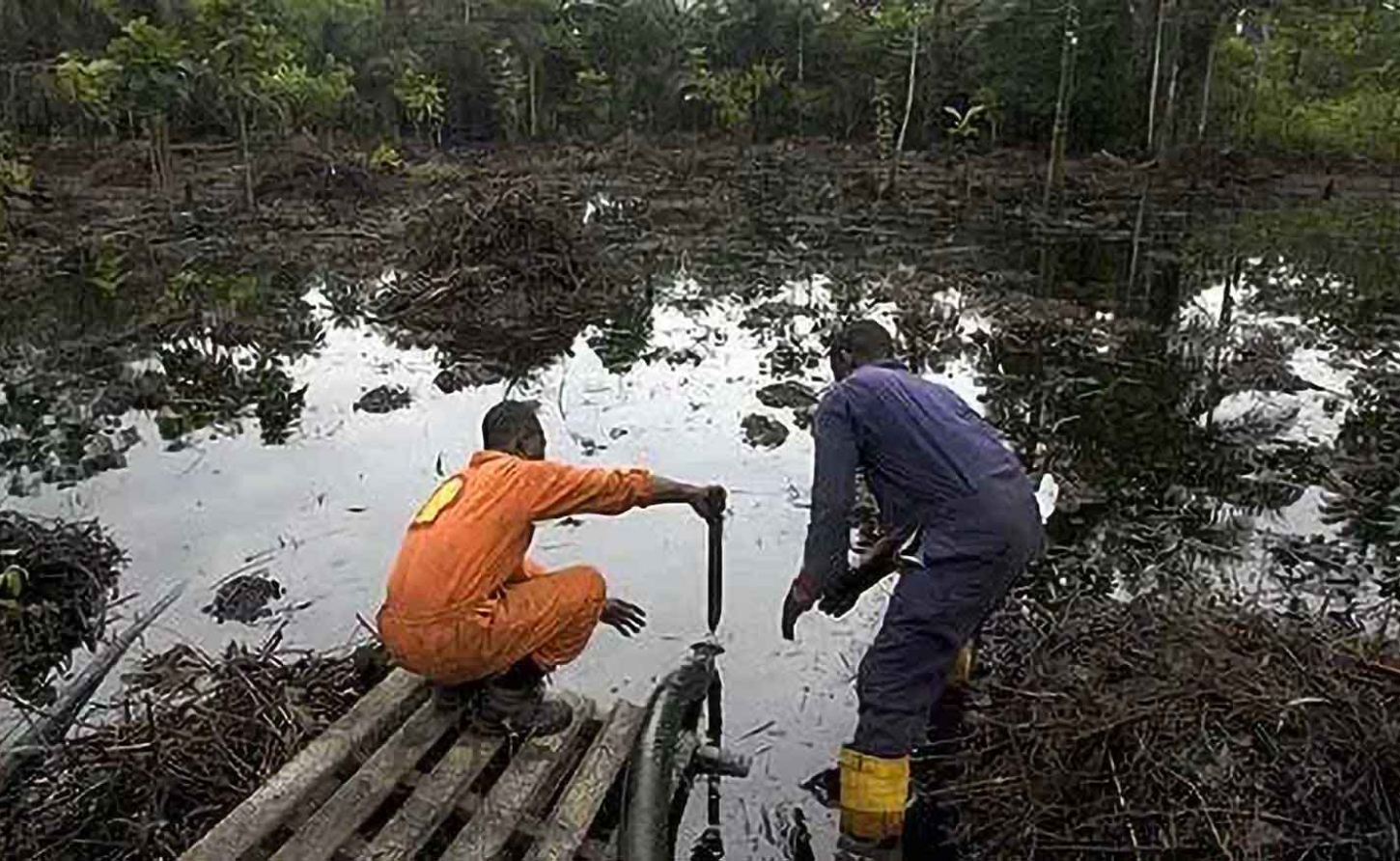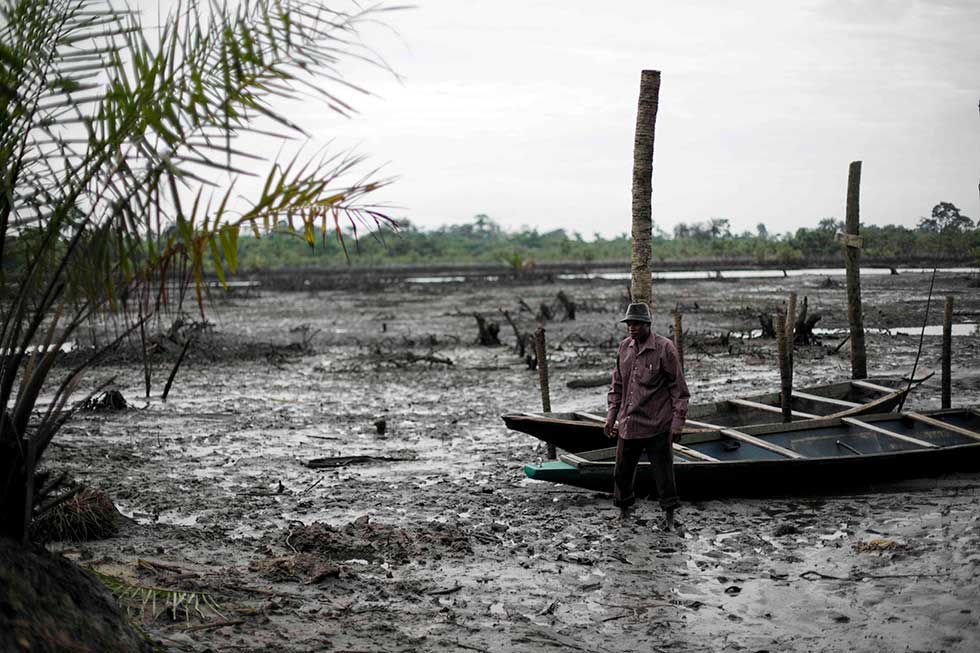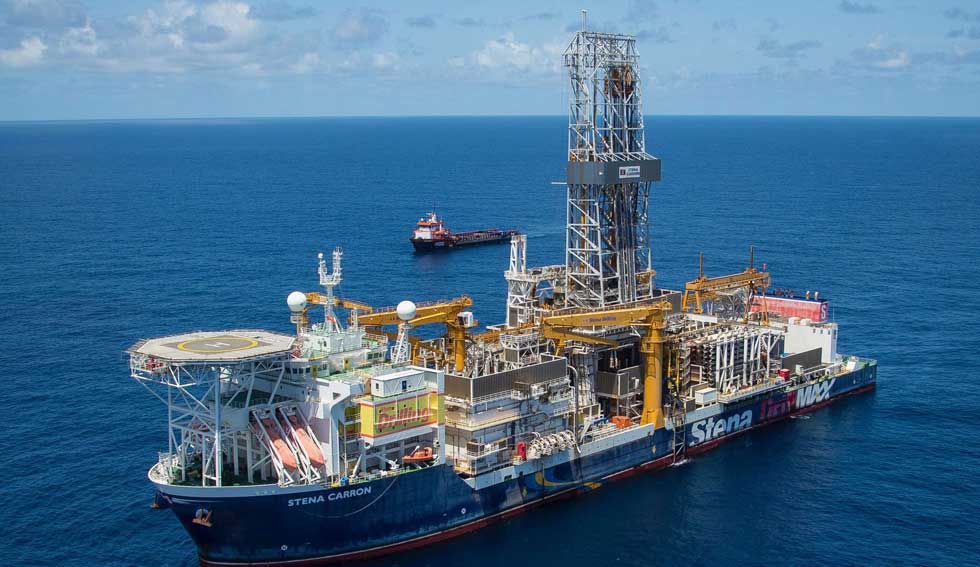AFRICA | A Shell Oil Toxic Legacy in Nigeria: A Cautionary Tale for the Guyana Oil Boom

MONTEGO BAY, Jamaica, April 19, 2025 - In what critics call a calculated corporate vanishing act, Shell has quietly withdrawn from Nigeria's onshore oil operations, leaving behind five decades of environmental devastation and unanswered accountability.
Journalist Judi Rever, author of "In Praise of Blood: The Crimes of the Rwandan Patriotic Front," describes standing in the village of Ebubu in Nigeria's Ogoniland in 1999, witnessing "a vast, charcoal wasteland" created by a devastating oil spill.
The community's streams were dead, aquatic life obliterated, and the village eerily hollowed out. Oil from a ruptured Shell pipeline had coated their home three decades earlier, transforming once-fertile land into what local activist Nyieda Nledi Nasikpo described to Rever as resembling "a nuclear holocaust, 30 years later."
Nasikpo, a member of the Movement for the Survival of Ogoni People (MOSOP), had witnessed the 1995 execution of environmental activist Ken Saro-Wiwa from a nearby jail cell.
Rever notes that Saro-Wiwa had spent years demanding Shell and British Petroleum compensate his people for their ruined lands and livelihoods before his hanging by Nigeria's military government shocked the human rights world.
Saro-Wiwa's accusation of "ecological genocide" was supported by stark statistics: between 1976 and 1991 alone, Rever reports that over two million barrels of oil poisoned Ogoniland in nearly 3,000 separate spills. In 2021, Shell finally agreed to pay the community $111 million in damages – fifty years after the spill that devastated Ebubu.
According to Rever, experts in neighboring Bayelsa state have characterized the frenzied extraction of billions of barrels of oil as creating an "environmental genocide." She documents how thousands of spills, unrestricted gas flaring, and toxic releases have poisoned farmlands, drinking water, and air throughout the Niger Delta.
The legal consequences for Shell have mounted over decades. Rever highlights how Shell paid $15 million to plaintiffs in Goi who were "eating, drinking and breathing the oil" after a catastrophic spill in 2004.
In the fishing town of Bodo, devastated by two massive spills that destroyed irreplaceable mangrove habitats, Shell settled for $83 million in 2014 – though residents claim promised clean-up efforts remain woefully inadequate.

"Shell's exit is just a way of running away from the damage the company has caused," Isa Sanusi, Amnesty International's Nigeria director, told Rever. "It's a calculated strategy to shield itself from being held to account for everything that has happened in the Niger Delta."
The approval process itself raises troubling questions. According to Rever, Nigeria's regulatory commission, the NUPRC, hired Boston Consulting Group and S&P Global to evaluate Shell's proposed sale.
But as Amnesty discovered in July 2024, both firms regularly collect substantial consulting fees from Shell – a clear conflict of interest. "The report ended up being a total rubberstamp of the deal," Sanusi told Rever, noting that the sale agreement failed to clarify Shell's outstanding environmental liabilities.
The human toll of Shell's operations is measured not just in damaged ecosystems but in human lives. Rever notes that the average lifespan in the oil-rich Niger Delta is a shocking 41 years – a full decade below Nigeria's national average.
Cancer rates have spiked in communities like Ogale and Bille. Midwives in Ogoniland report alarming increases in birth deformities. A German study cited by Rever estimated that in 2012 alone, oil spills in the region may have caused the deaths of 16,000 infants.
Throughout this ongoing tragedy, Rever points out that the Nigerian government has consistently prioritized oil revenues over citizen welfare. "People's lives have been completely destroyed by these oil giants," Sanusi told Rever. "It's so unfortunate that the Nigerian government has prioritized profit over the livelihood and well-being of the Nigerian people. This has to stop."
Even as Shell retreats from onshore operations, Rever reports that it has paradoxically increased its deepwater investments off Nigeria's coast. In December 2024, Shell and partners committed $5 billion to the Bonga North project – despite a troubling track record. In 2011, a Shell-owned production ship spilled 40,000 barrels into the Atlantic, creating an oil slick covering 1,776 square kilometers. Shell's Nigerian subsidiary was fined $3.6 billion by regulators – a penalty the company continues to fight.
This offshore pivot "opens a new frontier for the destruction of the environment," Sanusi warned Rever, but shouldn't distract from Shell's decades of poisoning Nigerian communities.
Rever concludes that the mounting lawsuits may eventually force Shell to fully confront its Nigerian legacy, but damages awarded thus far are pocket change compared to the company's financial might. Despite weaker markets in 2024, Shell distributed $22.5 billion in profits to investors and paid its CEO $11 million.
The company can clearly afford meaningful compensation for the devastation it has caused. More importantly, it has both a legal and moral obligation to do so.
Shell's devastating environmental record in Nigeria serves as a stark warning for other oil-rich developing nations, particularly Guyana, which is currently experiencing a massive offshore oil boom led by ExxonMobil and partners in the resource-rich Essequibo region.
Since 2015, when Exxon announced its first major discovery in Guyana's waters, the country has rapidly transformed into one of the world's fastest-growing oil producers.
The parallels are troubling. Like Nigeria decades ago, Guyana is a former colony with limited regulatory infrastructure suddenly faced with managing enormous foreign-led extraction operations.
The Guyanese government would be wise to study Nigeria's painful experience—where short-term economic gains came at catastrophic long-term environmental and social costs.

Unlike Nigeria's onshore operations, Guyana's oil development is entirely offshore in deep Atlantic waters, potentially creating even greater cleanup challenges in the event of a spill. The 2010 Deepwater Horizon disaster in the Gulf of Mexico demonstrated how devastating offshore accidents can be, with impacts felt across multiple nations' coastlines and ecosystems.
The regional implications of a major spill off Guyana's coast would be particularly severe. Ocean current patterns in the Caribbean Sea and western Atlantic would likely carry oil slicks northward, threatening the pristine beaches of tourism-dependent economies like Barbados, Jamaica, and Cuba. "An environmental disaster in Guyana's waters wouldn't remain Guyana's problem for long," explains marine ecologist Dr. Elena Vasquez.
"The interconnected nature of Caribbean currents means that neighboring countries with economies heavily reliant on beach tourism could face devastating economic impacts." For island nations already struggling with climate change challenges, an oil disaster could deliver a crushing blow to fragile tourism sectors that account for up to 40 percent of some countries' GDP.
For Guyana to avoid Nigeria's fate, it must establish independent regulatory bodies with real enforcement power, demand substantial environmental liability insurance from operators, create transparent revenue management systems, and ensure local communities benefit meaningfully from resource extraction.
Most importantly, the government must prioritize its citizens' long-term welfare over short-term profits—precisely what Nigeria failed to do in its dealings with Shell and other oil majors.
-30-
